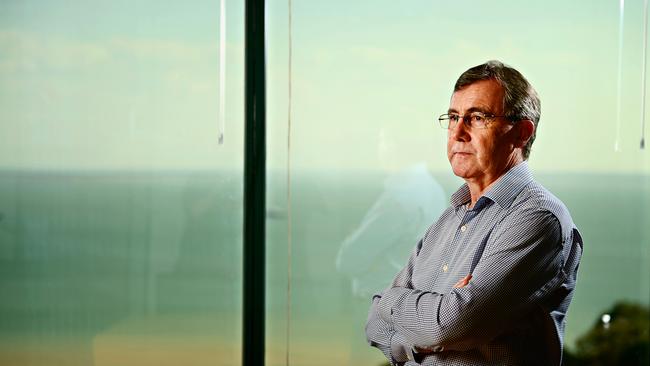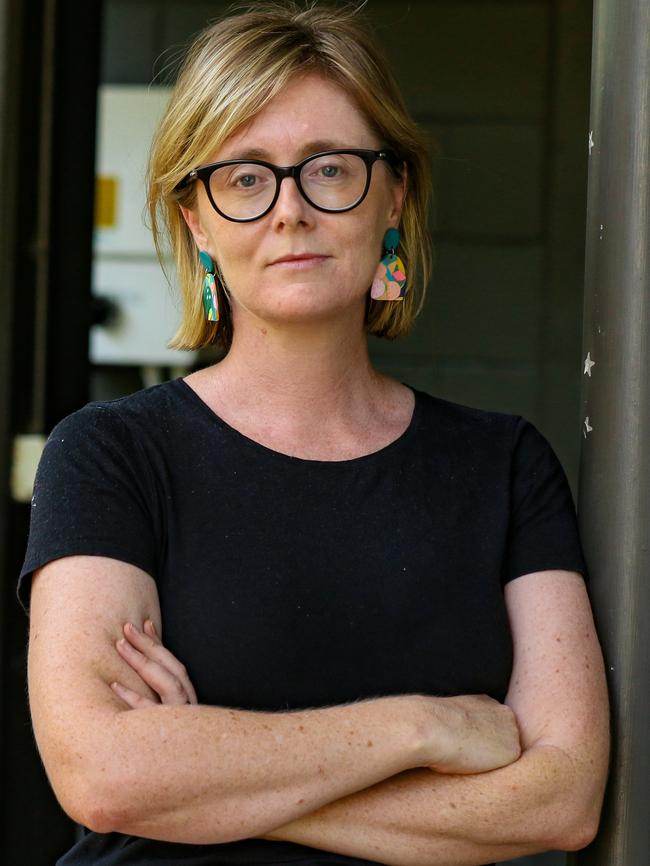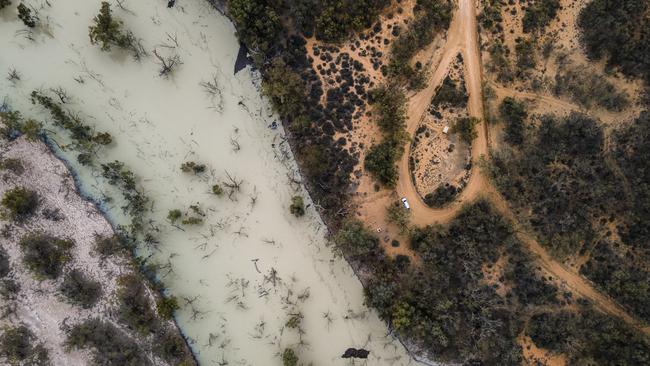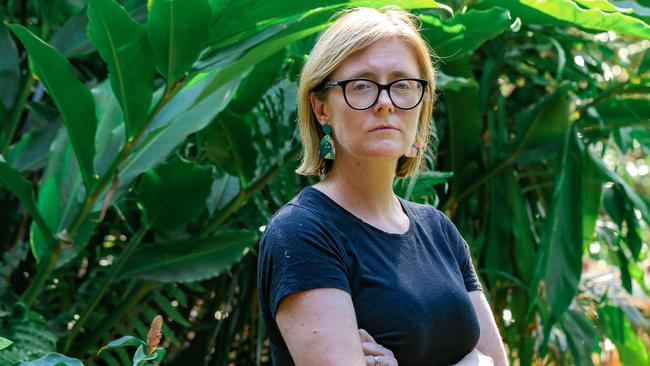“To us it doesn’t matter if the land is under a pastoral lease or held by the NT Land Corporation, we still have a responsibility under Aboriginal law to keep that land and the waters that flow under it safe and healthy for future generations.” — Northern Land Council chairman Samuel Bush-Blanasi.
AMID the high drama and political sparring of the August parliamentary sittings, Territorians could have been forgiven for allowing debate about the NT’s water governance arrangements to pass them by.
For those who missed it, as part of the Territory Economic Reconstruction (TERC) Bill, the NT government made changes to the Water Act it says will provide certainty for businesses and boost investment as the Territory recovers from the trauma of a global pandemic.
But a growing chorus of voices has been sounding the alarm about alleged perceived conflicts of interest and secretive governance arrangements that already pervades the current regime for granting licences over our most precious resource.
At the heart of those concerns is the NT Land Corporation (NTLC) — currently chaired by former chief executive of the Chief Minister’s Department John Coleman — and which critics claim was set up in 1986 as a vehicle to frustrate claims under the Aboriginal Land Rights Act.

Also on the board is Jo Townsend who also happens to be CEO of the Environment Department and the Territory’s Controller of Water Resources — though no mention of the latter role is to be found in her bio on the NTLC’s website.
And it’s Ms Townsend’s many hats that critics of the arrangement say make her position unusual throughout the rest of the Australia.
Emma Carmody is a specialist water management lawyer with the Environmental Defenders Office (EDO) and without being critical of Ms Townsend personally, she says her position is unique among Australian states and territories.
“The Water Controller, who’s responsible for handing out licences also sits on the board of this development corporation which is not something you would see in other jurisdictions … and this same person holds multiple other roles which give rise to further (perceived) conflicts of interest,” she says.
“The water law framework in the NT is fairly skeletal, so the act is not particularly long, it’s not especially detailed, it leaves room for a lot of discretion which can be problematic because it then means the decision makers, rather than being legally required to act on the basis of the best available evidence about cultural requirements or environmental requirements — there’s a lot of discretion built in there in terms of decision making around licencing.”
In a statement, Environment Minister Eva Lawler said any actual or perceived conflicts between Ms Townsend’s various roles were managed “by declaring those interests and from exclusion from acting on matters involving decisions by the controller under the Water Act, for land that is owned or occupied by the NTLC”.
“For example, Ms Townsend excluded herself from the discussions on the application and the decision to grant a water extraction licence to the NTLC,” she said.
****
The Environment Centre NT (ECNT) recently butted heads with the NTLC over the approval of a 10,000ML water extraction licence granted to it for the Larrimah Agricultural Precinct last year, a decision since overturned on review.
ECNT co-director Kirsty Howey says while the NTLC was established by legislation, it is a private corporation not subject to ministerial oversight but that appears to have an inside track other private companies don’t, due to its close connections to government.
“The problem with NTLC is that there’s really very little transparency about its dealings, I’ve tried to do an (Australian Securities and Investments Commission) search and nothing has come up and it’s really unclear to me and to the public exactly what happens with its revenue and where it goes,” she says.

“It appears that in 2019 the Water Controller was appointed to the board of NTLC and ECNT's view is that any private developer — whether or not it has links to government through the appointment of directors — is a private developer and needs to be treated as such.
“(For example), it really wouldn’t fly with Territorians if the Water Controller, or any other government bureaucrat, was on the board of Fortune Agribusiness and it shouldn’t be acceptable for any other private entity.”
The decision to overturn the Larrimah licence came as a result of a review brought on by a challenge from the ECNT and the Northern Land Council and adding to the shroud of secrecy, Dr Howey says her organisation has been blocked from accessing the document.
“We sought a copy of the Water Resources Review Panel (WRRP) report because we think it contains really important information for Territorians and for the public to understand what went wrong with the Larrimah licence and what should have happened and ECNT hasn’t been given a copy of that report, even though we have asked for it,” she says.
“We have just recently put in a (Freedom of Information request) to try to obtain it which we haven’t had a response to but it’s very unusual to be party to a review and not receive the report, it raises real questions about natural justice and procedural fairness.”
Following the revocation of the NTLC’s Larrimah licence, Environment Department executive director of water resources, Amy Dysart, appeared as a guest on ABC radio’s The Country Hour in June, where she publicly aired her department’s objections to the still secret findings of the WRRP.
“We stick by the science within the department and I’m a scientist within the department and we’re confident in the decision that was originally made by the Water Controller,” she said.
“We’re used to working in a contested environment in the department and there are always lots of opinions about the work which we do.
“We do have different scientific opinions between the review panel and the department but as I said, there’s ways in which we can address that and we will do that, we’ll be now, I guess, concentrating on the next step which is about getting another licence application in and another decision will be made.”
After hearing the interview, Dr Howey says while she remained in the dark about what the review panel’s report contained, she felt it was “unusual to hear the department doubling down”.

“We would have expected that the water resources department would take the decision on the chin and implement what the water resources review panel recommended,” she says.
In her statement, Environment Minister Eva Lawler said Ms Dysart was “a highly respected senior public servant and scientist who clearly articulated the process and scientific analysis that informed the original decision”.
“As the executive director water resources her responsibilities are to provide advice to the minister and lead the division related to water management in the Territory,” she said.
“This advice is supported by her Masters in water resource management, more than 15 years experience, as well as being an independent board member of Water Research Australia board, including chair of the Strategic Advisory Committee.”
Ms Lawler said the NTLC “exists to ensure that its land is available for future strategic uses, at the right time, to enable the NT to realise its long-term development potential”.
“It does not have any advantages over other proponents when applying for a water licence,” she said.
She said the corporation’s revenue went towards maintaining its land holdings.
“The corporation is responsible for the maintenance and preservation of its land assets, as well as the development and assessment, lease and licence preparations, administration and property management,” she said.
****
EDO lawyer Emma Carmody was heavily involved in investigating the governance issues surrounding the Murray Darling Basin which ultimately sparked a Royal Commission in 2018.
Her work led to an independent investigation by former National Water Commissioner Ken Matthews that she says uncovered “a concerning culture within water agencies” that heavily favoured particular irrigators.
Now since turning her attention to the Territory, Dr Carmody has been alarmed by what she has found.
“In the NT they don’t even seem to realise what good governance looks like at a really fundamental level,” she says.
“It is really troubling and I think what it speaks to is that without any kind of mirror being held up to those agencies, they don’t necessarily realise the extent to which they’re captured and the extent to which they’re favouring one set of interests over any other interest group, traditional owners for example.”
Dr Carmody says the current course towards “unsustainable growth” of the Territory’s water resources is setting the government on a collision course with farmers when the environmental impacts inevitably manifest themselves down the track.

“There’s actually an opportunity here to do something quite unique before overdevelopment becomes a problem and then it becomes extremely challenging to wind it back,” she says.
“What happens is that if the government realises that it’s kind of at disaster level and they have to wind it back, they then have to start thinking about buying out farmers and buying back water licences and all of that costs the taxpayer a lot of money — so you might have some kind of short term gain but in the longer term it will become unsustainable.
“There’ll be increasing conflict between different interest groups and then the government will reach a point where they’ll go ‘Enough is enough, clearly this river system is dying, we’re going to have to do something about it’ and they’re going to have to buy out a whole lot of farmers and that will cost billions of dollars.
“The writing is on the wall, that’s what’s happened in the Murray-Darling Basin.”
Dr Carmody says the creation of “head licences” under the newly passed TERC Bill appeared to be “a way of quarantining in advance a whole chunk of water which then prevents other people, traditional owners in particular, from having access”.
MORE OPINION AND ANALYSIS
Cracker Night date could backfire on Gunner
Corrections staff have been forgotten about in the NT youth justice saga
“It’s concerning because you’ve got in the NT among the poorest, the weakest water laws in the country but instead of seizing the opportunity to work collaboratively with traditional owners, environmental groups, other interest groups to build something really robust and to lead the country, they’re actually doing the opposite,” she says.
“They’re further weakening those laws to create more discretion for decision makers to hand out licences even if it’s not sustainable to do so.”
***
When asked for a response to the concerns of environmentalists and land councils about the changes to the Water Act contained in the government’s TERC Bill on August 6, Environment Minister Eva Lawler insisted no new changes to the Water Act would be made this month.
“No new legislative changes to the Water Act 1992 will be introduced during these sittings and further consultation will be undertaken with stakeholders,” she said.
“The amendments contained in the Bill make things simpler but not more risky to our environment.”
After the TERC Bill with its amendments to the Water Act passed on August 12, including increased powers for the Water Controller, Ms Lawler said the changes were not “new” as they had been introduced during previous sittings.
She said other changes to the Water Act were removed from a different Bill pending further consultation “regarding any future changes to the Act”.
“The passed amendment regarding the management of water resources and water licences, streamlines the process and will ensure there is greater consistency in decision-making, it is not a change in policy and does not weaken protections,” she said.
“Importantly, water reform undertaken by this government includes the establishment of Aboriginal Water Reserves, aimed at securing available water for traditional owners for their development now and into the future.
“The recent amendments to the Water Act do not put these water reserves at risk.”


Add your comment to this story
To join the conversation, please log in. Don't have an account? Register
Join the conversation, you are commenting as Logout
Mental health advocate uses personal pain as strength
The award-winning mental health facilitator and advocate is passionate about breaking cycles of violence and is not afraid to use her own painful story to do it.
Unpacked: The Kumanjayi Walker coronial inquest findings
After almost three years since it began, the inquest into the death of Kumanjayi Walker has finished. So, what did Coroner Elisabeth Armitage find out – and will it bring change?